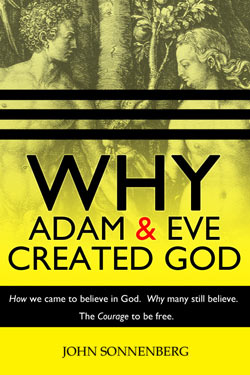Chapter 5 – The Hebrew Innovation – One God
From the turmoil of Akkadian-occupied Sumeria departed a Semitic tribe of Jews who, a millennia later, became a minor power in ancient Palestine. But those Jewish religious seeds would grow to become the most important religious, moral, and philosophic influence in western civilization. Previous religions added and deleted gods into and from their pantheon to accommodate intellectual and political change, but Judaism was very different. It derived its longevity by keeping only one god, and modifying his attributes, his commandments, and his history to suit the purpose of his advocates.
The beliefs, traditions, conquests, accomplishments, and failures of the Hebrews[1] are recorded in their Torah, and much of this information is contained in the books of the Old Testament Bible and Apocrypha. These works chronicled their history and were an oracle guiding their lives. The Torah contains most of what is known about the ancient Hebrews, for there is little archeological evidence of their early days and only opaque evidence remaining of them during the zenith of their nation. The Torah is part of the foundation of the Jewish faith, and the stories incorporated from it into the Old Testament Christian Bible play a key role in later religious development in the West. The stories we have today were put into writing 600 – 1000 years after the events occurred, so separating the facts from imaginative creation is very difficult. Archeological evidence of the geography, politics, and the societies of this era is in enough agreement to say that stories of the Jewish Patriarchs are probably based upon real people. Biblical accuracy and the history of the Hebrews have been debated by scholars for thousands of years, and may never all be sorted out, but what is important is the underlying thread of the stories and the Hebrew’s emphatic belief in the sacredness of their history.
This is only a short summary of this topic. To find out more, please get Why Adam and Eve Created God.

Leave a Reply
You must be logged in to post a comment.